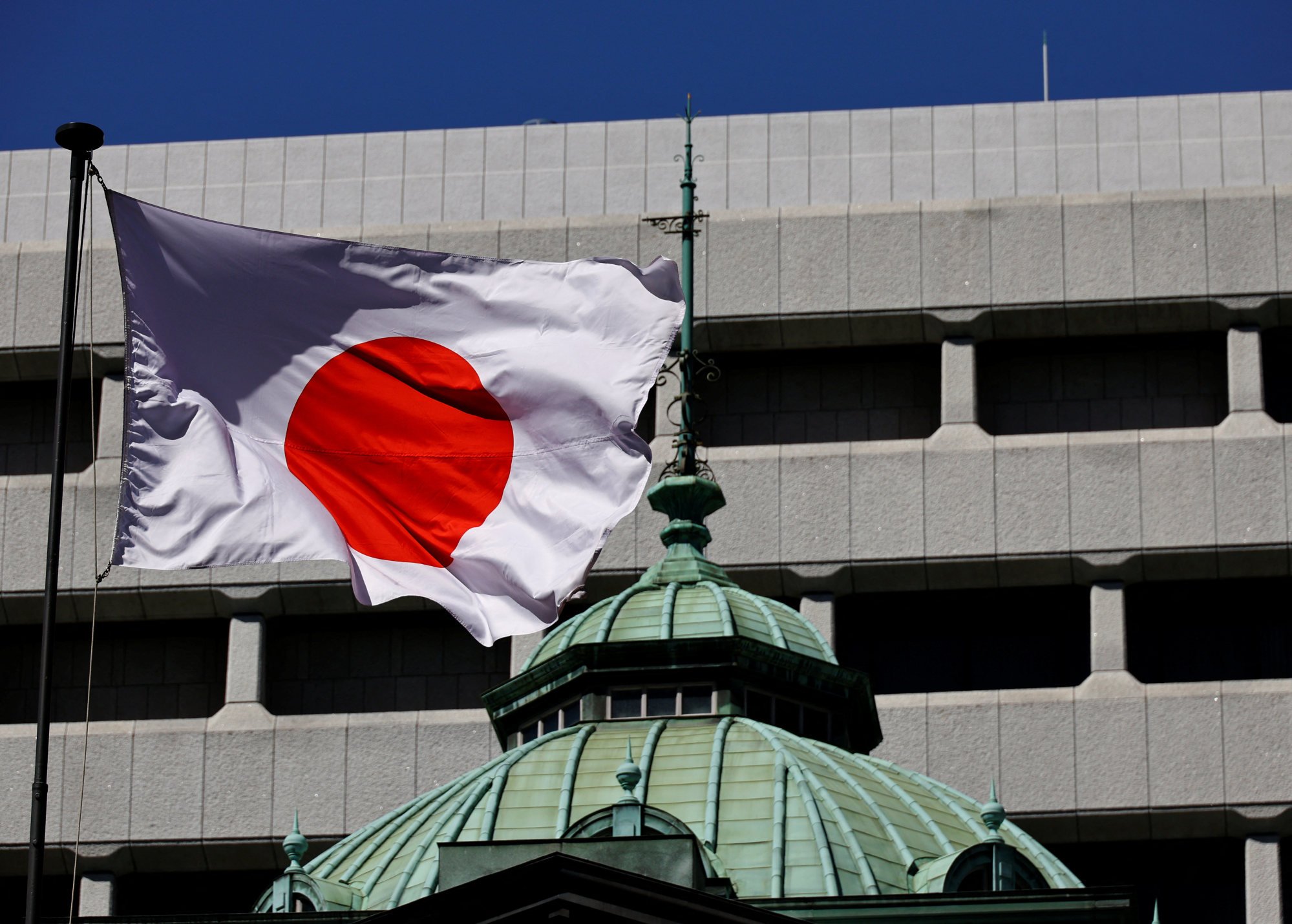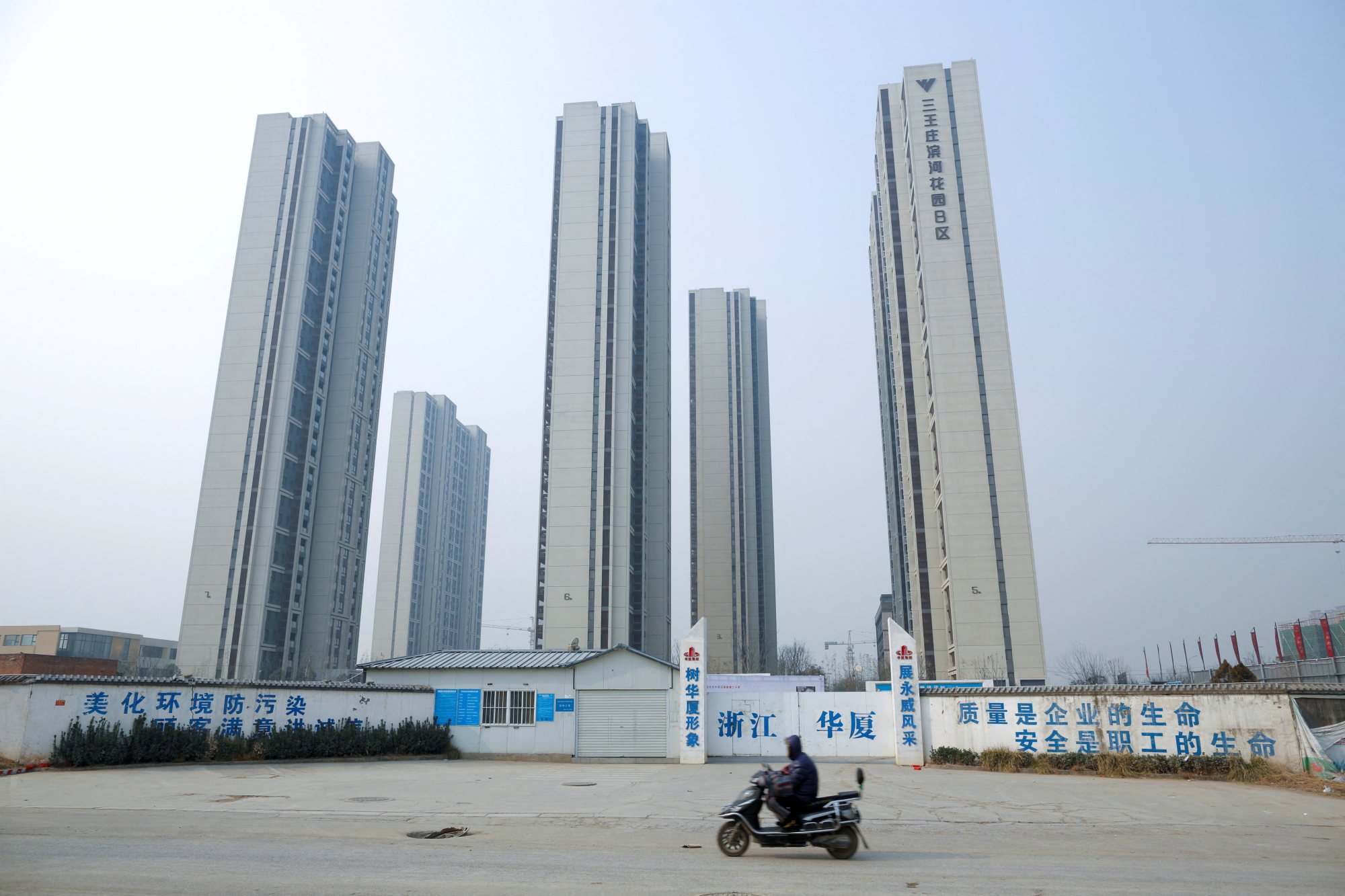What China must learn from Japan’s decades-long debt-deflation slowdown
- Chinese policymakers can ill afford to send mixed signals in their efforts to rejuvenate the economy, given excess supply and subdued demand
- Their tendency to view the economy as a machine that can be precisely controlled, and not account for the ‘butterfly effect’, is creating risks
At first glance, China’s first-quarter gross domestic product numbers seem to validate the state’s reliance on production to boost a slowing economy. Compared to the same period last year, GDP in the first quarter grew by 5.3 per cent, driven by a 6.1 per cent increase in industrial production and a 9.9 per cent increase in manufacturing investments.
But data from March points to the limits of relying on investment to sustain growth. The National Bureau of Statistics reported on Tuesday that industrial profits at large Chinese companies declined 3.5 per cent from a year earlier. This came after industrial profits in January-February had jumped 10 per cent, briefly raising hopes that the industrial downturn was over. Industrial revenue also fell sharply in March.
Order, price pressure disrupts recovery as China’s factory activity growth slows
Meanwhile, the consumer price index fell to near zero last month and the producer price index remained firmly in deflation territory at minus 2.8 per cent. Exports were also down 7.5 per cent compared to a year ago. All this points to subdued demand. Above all, China’s unusually large property sector shows no signs of recovery: property investments fell nearly 10 per cent in the first quarter of this year.
Do you have questions about the biggest topics and trends from around the world? Get the answers with SCMP Knowledge, our new platform of curated content with explainers, FAQs, analyses and infographics brought to you by our award-winning team.
China’s emphasis on production over consumption – boosting supply instead of demand – raises questions about what or who all this supply is ultimately for. If domestic consumption remains weak, the only option will be to export the excess supply. This is likely to provoke, if it has not already, a protectionist backlash from developed countries, and upset developing countries that are also looking to export-led industrialisation to drive growth.
Since the second half of last year, Chinese authorities have responded to the slowing economy in three main ways. The first has been to lower borrowing costs – but the problem in China today is not credit supply, it is the lack of credit demand. The second has been for the central government to borrow and invest in infrastructure development – but a 1 trillion yuan (US$138 billion) bond issue approved in October does not seem to have given the economy a large boost.
The third, unveiled most recently, has been to increase investments in “new quality productive forces” – a shorthand for China’s industrial policy to increase capacity in advanced manufacturing and achieve self-sufficiency in key technologies of the future. This strategy is likely to lead to excess capacity, generating more deflationary pressures.

Japan’s national flag waves in the wind outside the Bank of Japan building in Tokyo. Japan’s debt-deflation lasted more than two decades, despite very low and even negative interest rates. Photo: Reuters
Chinese officials do not accept that the country has an excess supply problem, even as they acknowledge – in private – that domestic consumption is weak. But excess supply and insufficient demand are two sides of the same coin. Chinese policymakers also seem to think that supply creates its own demand, when it is usually the other way round.
At the core of it, central planners often view the market economy as a machine or a mechanical system that can be precisely engineered or predictably controlled. But the economy is a complex adaptive system rather than a mechanical one.
First, the market economy is complex because it comprises many interconnected parts that interact in ways that are not always visible or apparent to policymakers. This means that a small shock to one part of the system may produce unexpectedly large consequences in another part because of how interconnected everything is – this is sometimes known as the “butterfly effect”. Alternatively, large changes may sometimes not produce the desired results.
The global financial crisis 16 years ago provides a vivid example of this: subprime mortgages were never a significant part of the US mortgage market, but problems in this obscure part of the mortgage market brought the global financial system to a standstill because the risk of subprime mortgages going bad had been dispersed throughout the financial system through securitisation.
Conversely, Japan’s lost decades from the mid-1990s to the early 2020s showed how even very low – and at times negative – interest rates may not produce the desired boost to consumer spending, investment and inflation when deflationary expectations are entrenched.

High-rise apartments under construction in Zhengzhou, China’s Henan province. China’s property sector still faces a myriad of challenges, even after a court order for Evergrande’s liquidation. Photo: Reuters
The property sector in China is not just unusually large, accounting for about a quarter of annual output, it is also highly connected to other parts of the Chinese economy – not least through its financing of local governments. Household wealth in China is also highly concentrated in property. Just as systemically important financial institutions had to be rescued to prevent a financial meltdown 16 years ago, major property developers in China may also be too interconnected to fail. It’s unlikely that the decision by a Hong Kong court in January to liquidate Evergrande, the world’s most indebted property company, marks the end of China’s property debt crisis.
Second, the economy is adaptive in the sense that the firms and households that comprise it are constantly anticipating and adjusting to changing conditions. Their expectations and behaviours are adaptive rather than fully rational; they also respond as they see others responding. This mimicry means that rather than correct for errors in individual decisions, the herd mentality amplifies them. Depression-era economist John Maynard Keynes coined the term “animal spirits” to explain how human emotions rather than rational calculations drive investment decisions in volatile times.
Faced with depressed animal spirits in China today, policymakers can ill afford to dither or send mixed signals in their efforts to rejuvenate the economy. Statements that describe fiscal stimuli as causing a “trap of welfarism”, or the hesitation over lowering interest rates for fear of reflating the property bubble – while understandable under normal conditions – will only keep animal spirits suppressed. Similarly, the moral posturing over not rescuing troubled property developers because this would cause moral hazard is unhelpful. The immediate danger facing China today is that of systemic contagion.
Five reasons why China should still be considered a developing country
Third, the economy is a system because of the emergence of unpredictable patterns produced by billions of interactions between economic agents. One such pattern is debt-deflation. In an economy with very high debt levels – as was the case in China even before the pandemic – negative shocks, such as the zero-Covid policy and various regulatory crackdowns on technology companies, induce companies and households to deleverage, or pay off debts, even if interest rates are reduced.
Individually, rational decisions to deleverage produce the overall macroeconomic consequence of deflation. Deflation, in turn, increases the future value of debt – causing more deleveraging and deflation. This self-reinforcing dynamic goes against the self-correcting dynamic predicted in most rational-choice economic models.
Once the debt-deflation dynamic takes hold, it takes a great deal of effort to break it. Japan’s debt-deflation lasted more than two decades. If China does not heed the lessons from Japan’s experience, it is not unthinkable that the current slowdown might turn into a prolonged one, delaying China’s ambition to become a medium-developed economy by 2035.
Donald Low is Senior Lecturer and Professor of Practice, and Director of Leadership and Public Policy Executive Education, at the Hong Kong University of Science and Technology.
More Articles from SCMP
He was jealous of Bruce Lee, and wanted to ape James Bond: in The Man from Hong Kong, Jimmy Wang Yu got his chance
Hong Kong’s national security laws not major concern for international arbitration community, head of Bar Association says
Meet Hugh Jackman’s 18-year-old adopted daughter, Ava Jackman: the Wolverine actor and his ex-wife Deborra-Lee Furness share 2 kids – and low-key Ava just went on a rare public outing with dad
‘Smears and baseless’: China rejects Canadian election meddling claims
This article originally appeared on the South China Morning Post (www.scmp.com), the leading news media reporting on China and Asia.
Copyright (c) 2024. South China Morning Post Publishers Ltd. All rights reserved.
